by Karah Karah | May 23, 2016 | Prescriptions for your Practice
Podcast: Play in new window | Download
Quotes & Notes: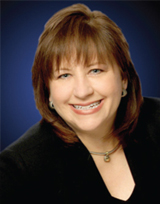
- One thing that the listeners need to know is that there’s a huge difference between a treatment plan and a financial arrangement.
- Your staff needs to be equipped with responses, and they need to practice them, it needs to roll off their tongues.
- You always discuss the financial options before you schedule.
You have to care about the people first, number one, they can feel that. The most effective presenters believe the patient deserves the best treatment.
- The staff needs to be prepared to continue the communication with the patient. They need knowledge, confidence, and they need to know how important it is.
We do want to have good relationships with our patients, we need that, we are in the people business. You want to spend 75% of the time talking about dentistry and 25% of the time talking about all of those fun things.
- You have to make sure you have the objections handled for if you don’t they are going to make an appointment and then leave and cancel it, or they are not going to make the appointment at the checkout.
- Consistency equals predictability.
- Every single attempt (to follow up with an incomplete treatment patient) must be documented.
If you would like to learn more from Sandy Pardue you should go check out Classic Practice Resources at classicpractice.com.
If you enjoyed this episode, we would love a 5-star review on iTunes:

by Karah Karah | Apr 26, 2016 | Prescriptions for your Practice
Podcast: Play in new window | Download
Quotes & Notes: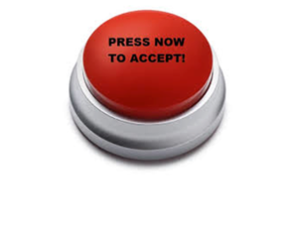
- Well first off, it’s (case acceptance) is averaging about 35 percent and that’s really low. A lot of times what we see is that practices are not telling patients what they need, or they’re going to the opposite and going too far into what the ideal treatment plan is.
- That’s one thing that we really stress to dentists, as well as team members, is you have to tell the patient what they need and what will happen if they don’t get it.
Get out there, utilize the tools like Facebook, you’ve got 1 billion people of Facebook, I mean what a great way to promote your practice and what you can do for your patients.
- Your most skilled person should be the face of your practice to the person on the phone or the person walking in the door.
- Back when I worked in a practice at the front desk I used to record all of my calls for that was the best practice.
- You want to make sure your office is clean, and here is what I want you to do; go sit in your own reception room and look around… You want people to be comfortable.
- I don’t think you should go so far into that new patient call that they get uncomfortable, but you need enough information.
- You have to find out what is real for the patient, why do they come there? Maybe it is one little tooth that is bothering them. Listen to what motivated them to get there.
- The top three patient objections are always going to be un-aware need. They don’t understand that their condition will get worse, it will cost more, and it will not go away. Another objection they will have is fear, and they will not tell you they are afraid. And then the other is a financial problem.
- After you have presented this you want to ask them this one last question; “Have I answered all of your questions?
If you would like to learn more from Sandy Pardue then you can stay tuned for next week’s episode when we will get into the next five.
If you enjoyed this episode, we would love a 5-star review on iTunes:

by Karah Karah | Mar 15, 2016 | Prescriptions for your Practice
Podcast: Play in new window | Download
Quotes & Notes: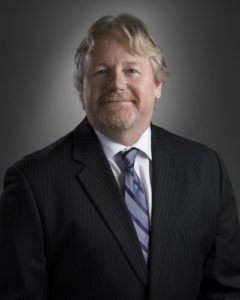
- What we do in essence is to provide a platform for a dental office to work with their team. There is this HR component that I don’t think a lot of doctors realize when coming out of school that they are going to have to fulfill.
There are a lot of different ways that you can approach different problems instead of striking fear in other people.
- You went to school to be a doctor, and your manager did not go to school to be an attorney and no one in your office is really qualified to write a HR manual.
You are going to be an employer about half of your time and you get to be a dentist in between being an employer. And being an entrepreneur, an employer, is hard.
- Be relentless in your desire to have good people working for you and don’t let the bad people drag you down.
- The better you get at hiring, the better you have to get at firing. There has to be firing.
- In the behavioral interview, what you are looking for, is what they did in the past tells you what they are going to do in the future.
- All the dentist think the only way to make them happy is to give them money, but there are other ways to make people happy, it doesn’t mean you don’t have to pay them more, but it matters when you help someone find the things that they are supposed to be doing. They will come in for less pay.
- When solving an issue talk to the person one on one. Giving them a target, giving them something that’s tangible that they can work towards.
- Paul Edwards would suggest everyone read Multipliers by Liz Wiseman, Drive by Daniel Pink, and Beyond Entrepreneurship by James Collins.
If you would like to learn more from Paul Edwards feel free to email him at [email protected] or even call CEDR HR Solutions with (602) 476-1418.
If you enjoyed this episode, we would love a 5-star review on iTunes:

by Karah Karah | Dec 7, 2015 | Prescriptions for your Practice
Podcast: Play in new window | Download
Quotes & Notes: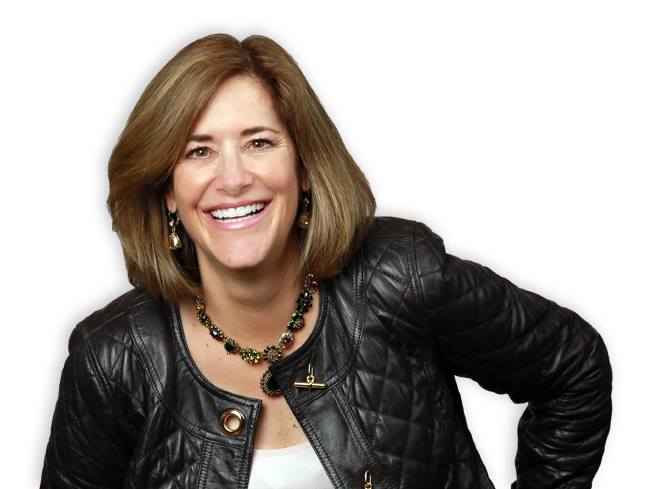
- If we increase one area of our life, the other areas like relationships and our enjoyment of life, health, they all are interconnected. We start out by increasing productivity, but it affects all areas.
- Primarily how gratitude works is let’s say we’ve got $10,000 in the bank and we say, “Gosh I just have that $ 10,000 dollar. That’s all I’ve got.” You feel even just the energy in those thoughts and those words. Or, I can refer to it as “Oh, I’m so grateful. I’ve got $10,000 dollars in the bank.” The more we express it… the more that we see opportunity.
- All of a sudden she feels better about herself (because you showed her gratitude) and she looks for ways to improve her skills.
Every night before you get into bed, pause and think about every moment you are grateful for. All night long you brain is going through all the things you are grateful for and it increases more of what you are grateful for.
- If you want to be happy, you have to actually decide to be happy.
- That’s probably why dentists have such a high suicide rate because they keep thinking oh it’s the next thing that’s going to make me happy. So let’s decide to be grateful and happy right now.
- The two things I suggest everyone do is practice gratitude, make it a gratitude practice. And then the other thing I found that can hold someone back in productivity is when a dentist is holding a grudge.
- I always say when you hold a grudge against someone it is like drinking a tiny bit of arsenic every day and hoping that another person is going to die.
- “I am always doing that which I cannot do, in order that I may learn how to do it.”~Pablo Picasso.
If you would like to learn more from Dianna Robinson you can go to her website http://dentistryitspersonal.com/.
If you enjoyed this episode, we would love a 5-star review on iTunes:

by Karah Karah | Oct 30, 2015 | Prescriptions for your Practice
Podcast: Play in new window | Download
Quotes & Notes: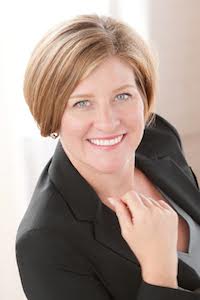
- We know that the future of dentistry lies in digital technologies and patients love it and they are going to come to expect it from most dental practices.
- We really want the practice to come up with a strong vision, however, it has got to start at the top; it has got to start with the doctor.
Our tagline is Extraordinary Practice, Extraordinary life because we really want our clients to have both.
- One [engine] might be your business engine, and I think this might be one of the most important, because let’s face it, as long as we are not running in a nonprofit organization, we want to make sure our business engine is running strongly.
- Sales and marketing we are really looking at branding and identity. So when I say branding I am talking about the emotional connection people have with your brand. And then there is your identity and that would be your logo.
- There needs to be a new patient system. We also need to look at scheduling. We also need to look at our financial systems. We also need to look at the re-care and reactivation system. So there are many, many, many systems.
What is your clinical vision, and also connect with your hygiene team to really connect on what is the standard of care in this practice?
- The people engine is yes, do I have the right people on the bus, on the right seats on the bus, and do they all know where the bus is going?
- All companies have these five business engines, but it all has to go back to, is this moving me towards or away from my vision?
If you would like to learn more from Kim McGuire, be sure to check out her website fortuneofcolorado.com or [email protected], or you can even find them on Facebook or Twitter.
If you enjoyed this episode, we would love a 5-star review on iTunes:

by Karah Karah | Aug 1, 2015 | Prescriptions for your Practice
Podcast: Play in new window | Download
Quotes & Notes:
- You know you are ready to do a startup when you look in the mirror and know you are ready.
- A startup is not right for most, because a startup is complicated and it is challenging.
- Are you a born fixer or a born creator?
- If there are things, even outside of practice ownership, that are important to you in life, go do it.
- We always say that a soon to be startup doctor should be very, very intense and intentional about what they want.
One of the most compelling tools is what we call the ideal patient. If we know exactly the kind of patient that you can serve best and you want to be caring for, then we can try to attract those kinds of patients.
- We go into three different categories: personal vision, clinical vision, and financial vision.
- There are as many different clinical preferences as there are dentists in this world.
- Pretty buildings are not all they are cracked up to be in dentistry.
- There are really good banks that are great at specific startup visions.
- I think it needs to be at least 2000:1 (patient to dentist ratio) to create a little bit of a safety net.
- Your landlord, I believe, is much more important than the dollars per square foot or even the town you are in.
- I am a bit of a contrarian, but I think signage doesn’t matter at all unless you have amazing signage.
- If you believe you need to say five operatories then each operatory should need on average between 400 to 450 sq feet.
- Having a break room when possible is that important.
- When possible you should have a sterilization center that has an in and an out.
- You can get a free copy of Jayme Amos’ book Choosing the Right Practice Location, at howtoopenadentaloffice.com/free.
If you would like to contact Jayme Amos or find out more, you can go to idealpractices.com and listen to his podcast. If you would like to apply to have Jayme and his team help you with a start-up practice you can go to howtoopenadentaloffice.com/apply.
If you enjoyed this episode, we would love a 5-star review on iTunes:

Page 27 of 28« First«...1020...2425262728» 






